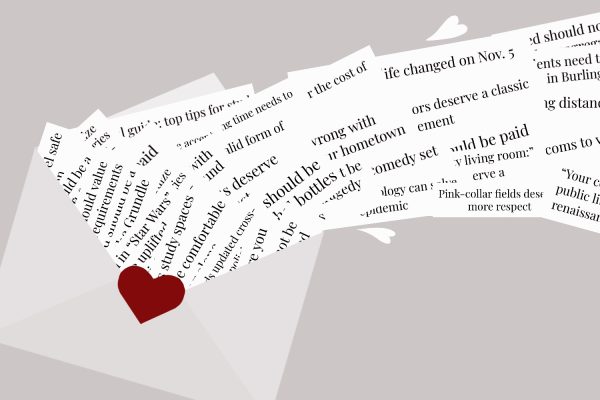Response: Agency fees are theft
In response to professor Felicia Kornbluh’s letter published last week: Kornbluh’s assertion that agency fees are used solely for collective bargaining and policy proposal — and, therefore, such coercion is permissible — is an exercise in question-begging.
It assumes collective bargaining and contract administration are inherently apolitical, when they certainly aren’t.
In fact, had Justice Antonin Scalia lived past March 29, the Supreme Court would have struck down what Kornbluh deems permissible.
Friedrichs v. California Teachers Association — which a 4-4 decision left to the discretion of the lower court, and deferred to the 1977 precedent on the case — concerned two questions:
1) Are the normal duties of unions, funded through coercive agency fees, inherently political, and therefore in violation of the First Amendment? and
2) Does the fact one must opt out of non-chargeable union activities — such as political advocacy and donations through super PACs — in order to save one’s money from going (almost inevitably) to Democrats, violate, again, the First Amendment rights of non-union members?
To answer the second question: Yes, of course it does. We should always prefer affirmative consent to the “well, you didn’t say no, so I thought it was cool” rationale.
Supposing even that one wanted to opt-out of those non-chargeable fees, it wouldn’t make a difference for a while.
Terry Pell, president of the Center for Individual Rights, wrote in Forbes Magazine: “The union [NEA] takes the position that it can use ordinary dues to fund its super PACs rather than having to raise funds through voluntary donations, as is the case with the union’s regular PACs. Though agency fee payers can apply for a refund, they have to wait until next year to see the money.”
Moreover, as Daniel DiSalvo noted in National Review: “Among those who refuse to join [the union], some request a refund of their fees that is dedicated to political spending, but many neglect to do so.”
What should you call it if I took your wallet by force, offered it back only if you asked, and, even then, you could expect to see it an entire year later? Pickpocketing, likely.
DiSalvo also noted that “unions have an incentive to lowball their spending on politics,” as well.
Because the money is fungible, and there is almost no transparency in auditing such transactions, “the line between their spending on politics and their spending on ‘member education’…is blurry.”
To answer the first aforementioned question: Yes, regular union activities are inherently political.
How else would you label attempts to stifle school choice programs like vouchers: calls to raise taxes in order to raise teacher salaries (in the not-exactly-killing-it-budget-wise state of California), or the push for greater tenure protection? To the cloistered union big wigs, it’s just business.
To the rest of us, it’s using government to promote the economic interest of a powerful group. Some call it cronyism.
As Scalia noted of the case before his untimely death, “everything that is collectively bargained with the government is within the political sphere, almost by definition.”
Unions complain it is necessary to force non-members to pay agency fees, or else they might suffer from a free-rider problem.
But it is unclear why this problem should fall under the province of the state — or states, because around 20 states have legislation like California’s.
The liberals on the court, Stephen Breyer in particular, claim allowing unions to compel non-members to fund views contrary to their own is a matter of “stability” — that is, overturning precedent that has existed since 1977 could prove disruptive to daily life — but of course there is no “stability clause” in the Constitution.
There is, however, a First Amendment — and bad precedent is always worth over-turning. One should imagine overturning Plessy v. Ferguson proved very disruptive in many southern communities; but overturning it was consistent with the letter of the Constitution, and just, as well.
My prior comments stand, and I don’t believe I owe professor Kornbluh a retraction of what I have previously written.






